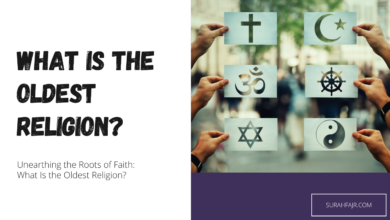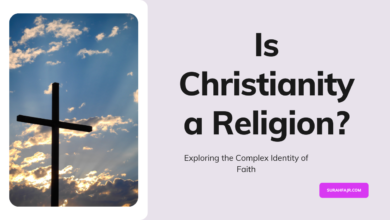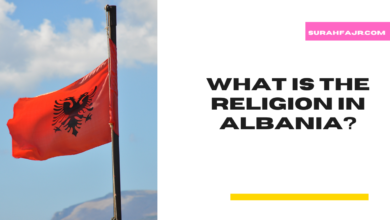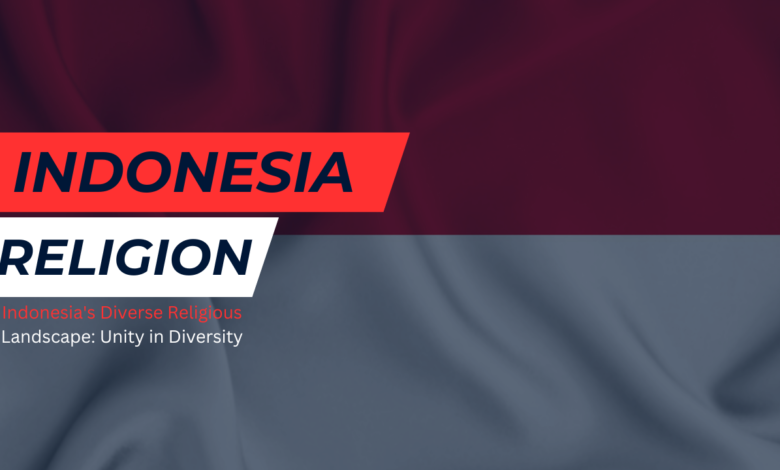
Indonesia Religion
The dominant religion in Indonesia is Islam. The majority of the population in Indonesia adheres to Sunni Islam, with a significant Muslim presence throughout the country.
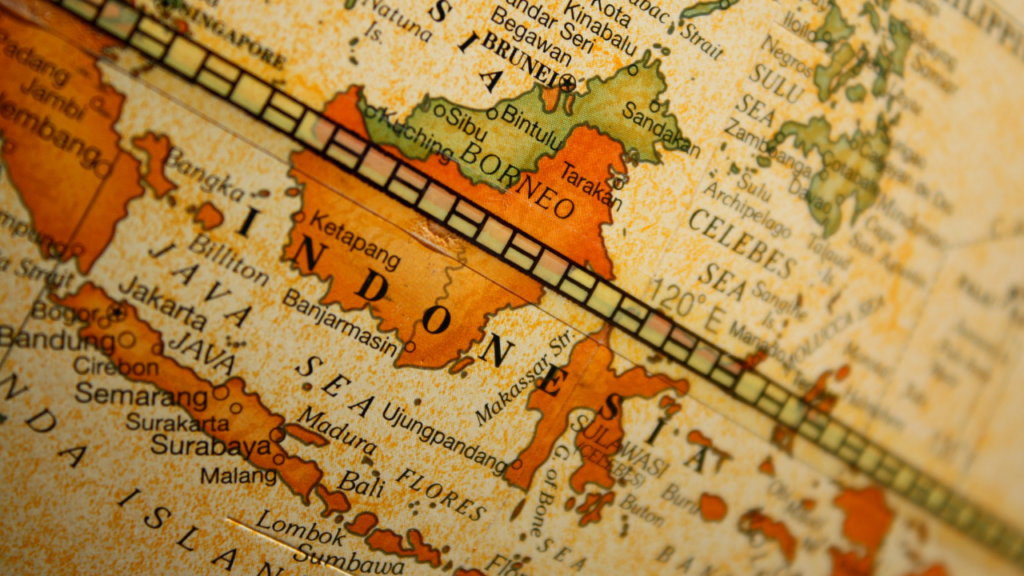
Introduction
Indonesia, the world’s largest archipelago, is a nation characterized by remarkable religious diversity. With a population of over 270 million people, it is home to various religious beliefs, practices, and traditions. While the majority of Indonesians identify as Muslim, the country boasts a harmonious tapestry of faiths, including Christianity, Hinduism, Buddhism, and indigenous beliefs. In this article, we explore the rich religious landscape of Indonesia, highlighting its unique characteristics and the principles of tolerance and coexistence that bind its people together.
The Dominant Faith: Islam
Islam is the most widely practiced religion in Indonesia, with approximately 87% of the population identifying as Muslim. It arrived in the archipelago in the 13th century through trade routes and has since played a significant role in shaping the country’s culture and way of life. Indonesia’s form of Islam is often described as moderate and syncretic, with influences from indigenous beliefs and other religious traditions. This has allowed for a unique Indonesian Muslim identity that is characterized by openness and inclusivity.
Religious Pluralism
One of the most remarkable aspects of Indonesia’s religious landscape is the presence of multiple faiths living together in harmony. The nation recognizes six official religions: Islam, Protestant Christianity, Catholic Christianity, Hinduism, Buddhism, and Confucianism. The government enforces religious tolerance and promotes the Pancasila, a set of five principles that include belief in one God and social justice. These principles underscore the importance of unity in diversity, fostering an atmosphere of religious pluralism that has few parallels in the world.
Balinese Hinduism
Hinduism, one of the world’s oldest religions, has a unique and vibrant presence in Indonesia, primarily on the island of Bali. Balinese Hinduism is deeply intertwined with local traditions, art, and culture. The island is known for its stunning temples, intricate dance performances, and colorful ceremonies that celebrate the Hindu pantheon of deities. The presence of Hinduism on Bali serves as a testament to Indonesia’s religious diversity and the ability of different faiths to coexist peacefully.
Also Check
- What Is The Oldest Religion?
- What Is the Religion in Albania?
- Where Is Buddhism Most Practiced?
- Who is the God in Islam?
- What is Islamism?
- Why Indonesia is Muslim?
Buddhism and Confucianism
Buddhism and Confucianism also have a notable presence in Indonesia. Buddhism, with its roots in the ancient kingdom of Srivijaya on the island of Sumatra, is still practiced today, with a significant number of adherents. Confucianism, which emphasizes moral and ethical values, is embraced by the Indonesian Chinese community and has found a place within the country’s religious framework.
Christianity
Christianity, in its various denominations, is the second-largest religious group in Indonesia. Both Protestantism and Catholicism have sizable communities, and their influence is felt across the country. Christianity arrived in Indonesia during the colonial era and has become an integral part of the nation’s religious fabric.
Indigenous Beliefs
In addition to the officially recognized religions, Indonesia is home to a wide array of indigenous and animist belief systems. These beliefs vary across different regions, reflecting the cultural diversity of the archipelago. While they may not be as prominent as the major world religions, they play a vital role in the lives of many Indonesians, particularly in rural areas.
Religious Tolerance and Coexistence
Indonesia’s religious diversity is a source of national pride, and the principles of religious tolerance and coexistence are deeply ingrained in the country’s social fabric. Indonesians take pride in their ability to live side by side with people of different faiths, celebrating each other’s festivals and participating in interfaith dialogues. This spirit of harmony is exemplified in the country’s motto, “Bhinneka Tunggal Ika,” which means “unity in diversity.”
Challenges and Opportunities
While Indonesia’s religious diversity is a source of strength, it also faces challenges. Instances of religious intolerance and conflicts have occurred, and efforts are ongoing to address these issues. Nevertheless, Indonesia’s commitment to religious tolerance and harmony offers an inspiring example for the world and demonstrates that a nation can flourish when diverse religious traditions coexist peacefully.
Conclusion
Indonesia’s religious diversity is a testament to the nation’s ability to forge unity out of differences. The archipelago’s unique blend of religions and indigenous beliefs creates a vibrant and colorful tapestry of faith, where people from diverse backgrounds come together in a spirit of tolerance and coexistence. As the country continues to evolve, its rich religious landscape remains a source of strength and a model of interfaith harmony for the world to admire.
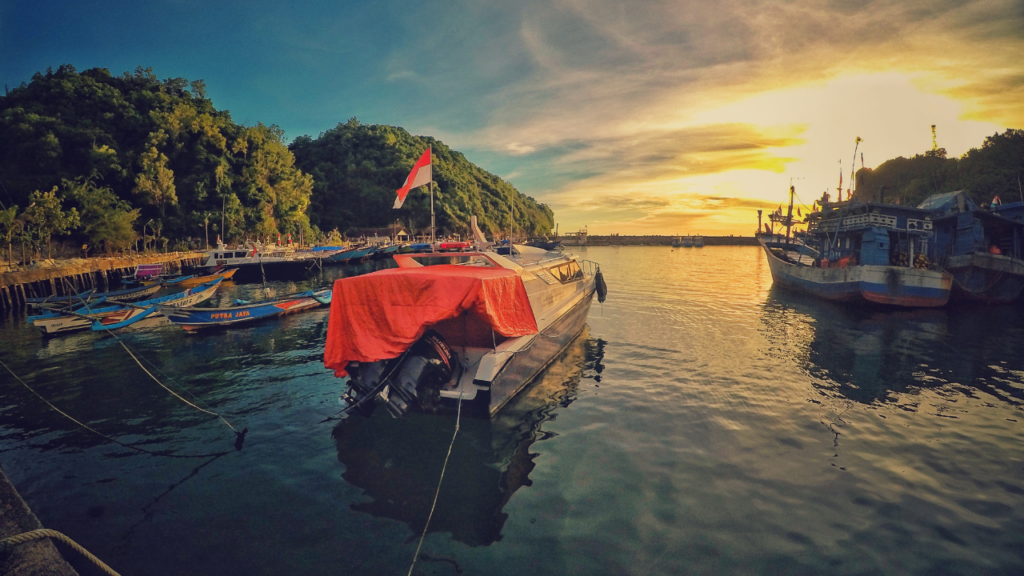
(FAQs) about religion in Indonesia:
What is the dominant religion in Indonesia?
The dominant religion in Indonesia is Islam. The majority of the population in Indonesia adheres to Sunni Islam, with a significant Muslim presence throughout the country.
Are there other religions practiced in Indonesia?
Yes, Indonesia is known for its religious diversity. Other religions practiced in the country include Christianity, Hinduism, Buddhism, and various indigenous belief systems.
How did Islam become the predominant religion in Indonesia?
Islam was introduced to Indonesia through trade and cultural exchanges, particularly by Muslim traders and missionaries from the 13th century onwards. Over time, it gained adherents and eventually became the majority religion.
Are there different branches or sects of Islam in Indonesia?
Yes, there are various Islamic sects and organizations in Indonesia. The majority of Muslims in Indonesia are Sunni, but there are also Shia Muslims and other smaller Islamic sects.
What is the religious diversity like in Indonesia?
Indonesia is renowned for its religious diversity. Besides Islam, there are significant populations of Christians, Hindus, and Buddhists, particularly in specific regions of the country. Additionally, many Indonesians practice traditional indigenous belief systems.
How does the government of Indonesia handle religious diversity?
Indonesia officially recognizes and protects religious freedom. The country’s constitution guarantees freedom of religion, and the government generally respects and supports the practice of various faiths.
Are there any religious conflicts in Indonesia?
While Indonesia generally promotes religious tolerance, there have been occasional incidents of religious tensions and conflicts, mainly between different religious groups or involving radical elements. The government has made efforts to address these issues and promote interfaith harmony.
Are there any restrictions on religious practices in Indonesia?
While Indonesia upholds religious freedom, there have been instances of local regulations or social pressures that have restricted certain religious practices. However, the government has taken steps to address such issues and promote religious tolerance.
What are some significant religious holidays in Indonesia?
Some of the most important religious holidays in Indonesia include Eid al-Fitr (celebrating the end of Ramadan), Christmas, Nyepi (Hindu New Year), and Vesak Day (celebrating the birth, enlightenment, and death of Buddha).
How is religion intertwined with Indonesian culture?
Religion plays a vital role in shaping Indonesian culture. It influences art, architecture, music, traditional ceremonies, and daily life in various ways, depending on the religious background of different communities.
